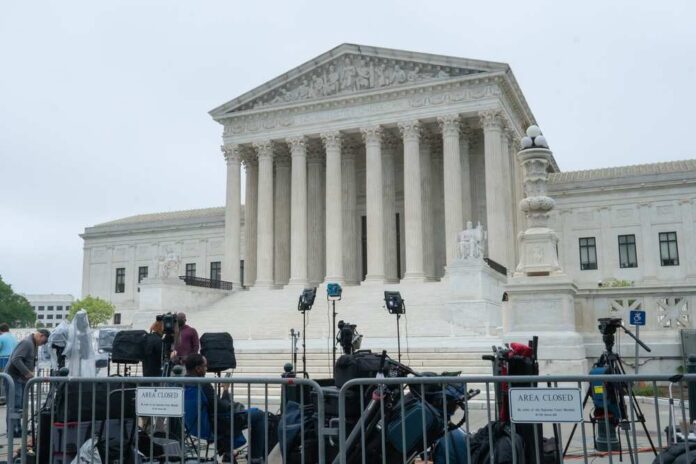
In a stunning blow to the bureaucratic overreach of the federal government, the Supreme Court has struck down a major enforcement tool used by the Securities and Exchange Commission (SEC) to combat securities fraud. The ruling in the case of **SEC v. Jarkesy** is a monumental victory for those who believe in the Constitution and the fundamental right to a fair trial.
The saga began back in 2013 when the SEC went after hedge fund founder George Jarkesy. The Commission, using its cozy in-house administrative law judges (ALJs), found Jarkesy guilty of violating several securities laws and slapped him with a $300,000 civil penalty. His advisory firm, Patriot28, was also ordered to repay nearly $685,000 in what the SEC deemed illicit gains. Talk about stacking the deck in favor of the house!
But Jarkesy, not one to roll over and play dead, decided to fight back. His attorneys argued that the SEC’s kangaroo court system, where they win nearly all cases, was inherently biased. In stark contrast, the SEC’s win rate plummets to just 60% when cases are brought before a real federal court. The U.S. Court of Appeals for the 5th Circuit agreed, ruling that the SEC’s administrative proceedings violated the Seventh Amendment right to a jury trial. They also pointed out that Congress had overstepped by allowing the SEC to conduct these internal proceedings, and that the rules protecting SEC judges from being fired were unconstitutional. Ouch.
Undeterred, the SEC appealed the decision to the Supreme Court. But in a 6-3 ruling, the highest court in the land delivered a sharp rebuke to the SEC. Chief Justice John Roberts, writing for the majority, declared that the SEC’s internal proceedings violated the separation of powers. The executive branch acting as prosecutor, judge, and jury? That’s not how it works in a democracy.
Roberts was joined by the other five conservative justices in upholding the Constitution. They made it clear that defendants accused of securities fraud are entitled to a jury trial in federal court, where justice can be served fairly and impartially.
Justice Sonia Sotomayor, in a desperate dissent, called the ruling a “power grab” and predicted “chaos.” She lamented that the decision upends longstanding precedent and established practice. Perhaps Justice Sotomayor should consider that sometimes “established practice” needs a good shaking up when it’s built on a foundation of overreach and injustice.
Jarkesy, understandably pleased with the ruling, celebrated the decision as proof that the “Constitution still matters.” Indeed, it’s a refreshing reminder that even in these turbulent times, the highest court in the land can still be counted on to uphold the principles upon which this nation was founded.
So, what’s next for the SEC? They’ll have to take their cases to federal court like everyone else. No more rigged in-house trials where they play all the roles. This decision is a win for fairness, transparency, and the rule of law. The Supreme Court has sent a clear message: the era of unchecked bureaucratic power is over. Now, let’s see how the SEC handles playing on an even field.
What do you think about the Supreme Court’s ruling? Share your thoughts in the comments below.














